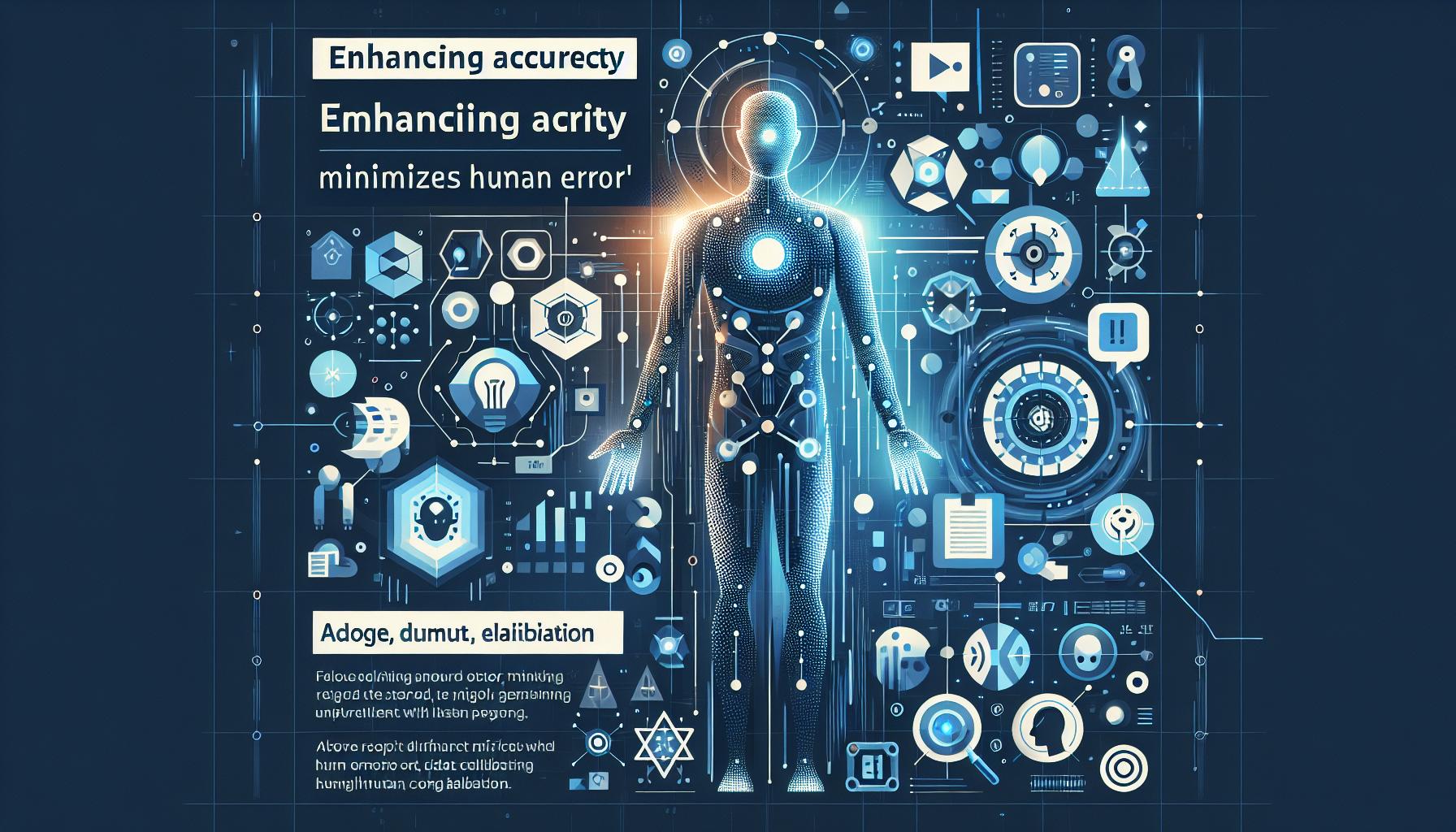Navigating the complexities of lease agreements can be a daunting task for legal professionals, often leading to costly oversights. By leveraging AI-powered prompts, contract analysis can be streamlined significantly, enhancing efficiency and accuracy. This innovative approach transforms lease reviews, making them faster and more reliable in today’s fast-paced legal landscape.
Understanding the Basics of Lease Reviews: Why They Matter

In today’s fast-paced real estate market, the importance of lease reviews cannot be overstated. Understanding the intricacies of lease agreements is crucial for landlords, tenants, and property managers alike. A lease is not merely a legal document; it serves as a vital roadmap outlining the terms and conditions that govern the relationship between the landlord and tenant. When properly understood and analyzed, these agreements can lead to smoother transactions, greater compliance, and fewer disputes.
A thorough lease review can unearth potential pitfalls and benefits that may not be readily apparent. For instance, crucial clauses regarding maintenance responsibilities, rent escalation terms, or termination rights can significantly impact financial outcomes and operational control. Recognizing these elements early on allows stakeholders to negotiate terms that align more closely with their goals, ensuring that both parties understand their rights and obligations.
Here are a few reasons why engaging in comprehensive lease reviews is essential:
- Risk Mitigation: Identifying and addressing unfavorable terms can prevent disputes and legal challenges down the line.
- Financial Clarity: Understanding the financial obligations outlined in the lease can help landlords optimize rental income while ensuring tenants know their payment responsibilities.
- Operational Efficiency: A clear understanding of maintenance and operational responsibilities helps streamline management practices and improve communication between parties.
- Compliance Assurance: Reviewing leases can help ensure adherence to local laws and regulations, reducing the risk of penalties.
Leveraging technology, particularly advanced tools like “Lease Review AI Prompt Legal: Streamline Contract Analysis with AI-Powered Prompts,” can elevate the process of analyzing leases. AI-driven prompts enable legal professionals and business users to conduct faster, more effective reviews by pinpointing critical clauses and suggesting revisions. This integration of technology not only enhances accuracy but also saves time, allowing for more informed decision-making.
Understanding these basics lays the foundation for successful lease negotiations, proactive property management, and a harmonious landlord-tenant relationship. Being equipped with the right knowledge and tools fosters better outcomes for all involved.
How AI-Powered Prompts Transform Contract Analysis
The integration of AI into contract analysis is revolutionizing the legal landscape, particularly in lease reviews. As legal professionals increasingly face vast amounts of contractual data, AI-powered prompts serve as an indispensable tool that enhances efficiency and accuracy. These technological advancements enable law firms and legal departments to dissect intricate lease agreements with remarkable speed, ensuring all critical elements are identified and assessed swiftly.
Enhanced Efficiency Through AI-Powered Prompts
AI-powered prompts streamline the process of contract analysis by automating repetitive tasks and reducing the time spent on document review. Traditional methods can be time-consuming and prone to human error; however, with these intelligent prompts, analysts can rapidly sift through extensive lease documents, extracting essential information such as:
- Key Dates: Identification of critical timelines for renewals and expirations.
- Financial Terms: Highlighting rental rates, escalations, and payment schedules.
- Contractual Obligations: Noting responsibilities and rights of both parties.
This automation not only mitigates errors but also allows legal teams to dedicate more time to strategic decision-making and client advising rather than getting bogged down in minutiae.
Real-World Examples of Transformation
Consider a law firm that manages numerous lease portfolios for clients in the commercial real estate sector. Before the adoption of AI-powered contract analysis, the process involved manual reviews that could take weeks. After implementing AI-driven prompts, they achieved a reduction in their review period by over 75%. They utilized a system that flags discrepancies, alerts to non-standard clauses, and even compares lease terms with regulatory requirements.
Such a transformative approach not only enhances accuracy but also ensures compliance with legal standards, ultimately protecting clients from potential legal pitfalls. The insight gained through AI-powered prompts allows legal professionals to provide tailored advice, reinforcing their role as strategic partners to their clients.
Maximizing AI Functionality in Contract Review
To fully leverage the potential of AI-enhanced prompts in your lease reviews, consider the following actionable steps:
- Invest in Robust Software: Choose advanced legal tech solutions that offer customizable AI prompts tailored to your specific needs.
- Train Your Team: Ensure your legal staff is proficient in using these tools to maximize efficiency and accuracy.
- Regularly Update AI Algorithms: Keep your AI systems updated with the latest legal standards and practices to ensure optimal functionality.
By incorporating these strategies, legal professionals can effectively navigate the complexities of contract analysis while delivering exceptional service to their clients. The shift towards AI-powered prompts in lease review exemplifies a broader trend in which technology and legal expertise converge to create smarter, more efficient workflows in the legal domain.
Enhancing Accuracy: How AI Minimizes Human Error

In an era marked by rapid technological advancement, the role of artificial intelligence in streamlining complex processes has garnered significant attention. One area where AI, particularly Lease Review AI Prompt Legal, is proving invaluable is in reducing human error during contract analysis. Human oversight, often exacerbated by the repetitive nature of tasks, can lead to costly mistakes that jeopardize legal agreements. AI systems innovatively supplement human capabilities, enhancing accuracy in ways that were previously unattainable.
Minimizing Oversight through Automated Analysis
The introduction of AI-powered prompts into lease review processes not only accelerates contract analysis but also enhances accuracy. These systems analyze vast amounts of data much faster than any human could, responding to prompts that direct them to focus on specific clauses or risks. By leveraging machine learning algorithms, these tools can recognize patterns and anomalies that may escape the human eye. The following points illustrate how AI minimizes human error:
- Consistency: Unlike human reviewers, who may vary in attention and thoroughness, AI tools maintain uniformity throughout the analysis process.
- Error Detection: Advanced algorithms can flag inconsistencies or unusual patterns that could indicate errors, prompting a review before final decisions are made.
- Real-Time Analysis: AI systems can process documents in real time, providing immediate feedback and insights, thereby allowing legal teams to adjust their strategies swiftly.
Real-World Application: A Case Study
Consider a large corporate law firm that integrated Lease Review AI Prompt Legal into its contract analysis workflow. Prior to adopting this technology, the firm faced challenges with lengthy review timelines and frequent errors in contract drafts, leading to renegotiations and potential financial losses. Post-implementation, the firm’s accuracy in contract drafting improved by over 30%, with the AI identifying common pitfalls and offering corrective suggestions based on historical data.
| Before AI Integration | After AI Integration |
|---|---|
| 30% of contracts had errors | Only 10% of contracts had errors |
| Review process averaged 15 days | Review process averaged 6 days |
| High revision costs | Significantly reduced revision costs |
Through such transformative applications, it is clear that AI does not merely replicate human effort; it enhances it by reducing the likelihood of oversight and mistakes inherent in manual processes. The future of lease review hinges on these technological advancements, which not only streamline contract analysis but also build a foundation for more reliable and efficient legal practices.
Practical Applications: AI in Commercial vs. Residential Leases

In the evolving landscape of real estate, one of the most significant shifts has been the embrace of AI technologies, particularly in the context of lease agreements. Whether dealing with commercial properties or residential units, lease review AI tools enhance efficiency and accuracy, enabling stakeholders to navigate complex clauses and stipulations with ease. As property transactions become increasingly sophisticated, leveraging AI for lease analysis can prove indispensable.
Commercial Leases: Precision and Complexity
Commercial leases often involve intricate terms that can be challenging for even the most seasoned professionals to parse. With a variety of factors at play—such as zoning laws, maintenance obligations, and customization allowances—misinterpretations can lead to costly disputes. Lease review AI can help users streamline this process by offering features such as:
- Clause identification: Quickly pinpointing crucial clauses related to rent escalation, common area maintenance, and termination rights.
- Risk assessment: Analyzing contracts against a database of historical lease disputes to highlight potential red flags.
- Clause comparison: Checking terms against standard industry benchmarks to ensure they align with best practices.
For example, a property management company recently adopted an AI-driven tool that analyzes commercial leases. The AI flagged a clause about utility payments that previously went unnoticed, saving the firm from entering a contract with exorbitant hidden costs.
Residential Leases: Simplifying the Standard
On the other end of the spectrum, residential leases often consist of a standardized format but still require careful scrutiny. Simplistic agreements can obscure essential rights and responsibilities, leading to misunderstandings between landlords and tenants. AI-powered prompts can effectively aid in this arena by providing features such as:
- Language simplification: Breaking down complex legal jargon into understandable language for both parties.
- Highlighting tenant rights: Automatically identifying clauses that concern tenant privacy, deposit refund timelines, and maintenance responsibilities.
- Customization suggestions: Offering recommendations for lease amendments that better protect tenant rights and comply with local laws.
In practice, a rental agency using AI lease review software discovered several unfair clauses—like a 24-hour notice for entry—that were not compliant with local laws. The agency restructured its agreements before implementing changes, ultimately fostering better relationships with tenants.
| Feature | Commercial Leases | Residential Leases |
|---|---|---|
| Clause Identification | Yes | Yes |
| Risk Assessment | Yes | No |
| Language Simplification | No | Yes |
| Highlighting Rights | No | Yes |
As the complexities of leasing evolve, the implementation of Lease Review AI Prompt Legal: Streamline Contract Analysis with AI-Powered Prompts offers landlords, tenants, and legal professionals the tools they need to ensure that all parties are adequately informed and protected. By embracing these technologies, stakeholders can expect significant improvements in efficiency, compliance, and overall satisfaction with the leasing process.
Choosing the Right AI Solution for Lease Analysis
Choosing the ideal AI solution for lease analysis can significantly elevate efficiency and accuracy in contract review processes. With the vast number of lease agreements and contractual obligations in the real estate industry, the right technology can serve as a game-changer. By leveraging AI-powered prompts, legal professionals can streamline contract analysis and ensure no critical terms are overlooked.
Understand Your Needs
Before diving into specific AI solutions, it’s essential to assess your unique requirements. Consider the following questions:
- What volume of leases are you analyzing on a regular basis?
- Do you need comprehensive analysis, or do you focus on specific clauses?
- What existing processes do you want to integrate the AI with?
By clearly defining your needs, you can eliminate options that do not align with your operational goals.
Evaluate Features and Capabilities
Once you have a clear understanding of your requirements, compare available AI solutions based on their features. Look for tools that offer:
| Feature | Description |
|---|---|
| Clause Detection | Ability to identify and flag specific lease clauses like renewal options or termination rights. |
| Risk Evaluation | Assessment of potential risks based on contract language and legal precedents. |
| Integration Capabilities | Seamless compatibility with existing document management systems and workflows. |
| User-Friendly Interface | Intuitive design that minimizes the learning curve for legal teams. |
Feature evaluation is crucial; for instance, a tool with advanced clause detection can automate much of the mundane review tasks, freeing up time for lawyers to focus on strategy and negotiation.
Consider Scalability and Support
Equally important is the solution’s ability to scale with your firm’s growth. Opt for an AI lease review solution that can handle increasing volumes of contracts without sacrificing performance. Adequate support services are also vital; you’ll need responsive technical assistance and user tutorials to maximize your investment.
In real-world applications, teams employing AI-driven lease analysis have reported up to 50% faster review times and significantly reduced error rates. For firms looking to optimize their lease management processes, these statistics not only highlight the efficiency gains but also underscore the competitive advantage that comes from harnessing AI. When adapted correctly, technologies like lease review AI prompt legal can empower firms to make smarter, data-driven decisions.
Overcoming Challenges: Common Pitfalls in AI-Powered Reviews
The integration of AI-powered tools in lease review processes has transformed how legal professionals approach contract analysis. However, this innovative technology comes with its own set of challenges that can hinder its effectiveness if not addressed properly. Understanding common pitfalls and implementing strategies to overcome them is crucial for realizing the full potential of AI in legal settings.
Data Quality and Relevance
One of the primary challenges in utilizing AI for lease reviews is the quality of data fed into the system. An AI model operates on patterns and rules derived from the information it processes. If the data is outdated, incomplete, or irrelevant, the AI’s output will not only be inaccurate but can also lead to significant legal oversights.
- Ensure Accurate Data Input: Establish protocols to verify the accuracy and relevance of the data before it’s processed by the AI.
- Regular Updates: Implement a system for routinely updating the database with current leases, legal standards, and compliance requirements.
Over-Reliance on Technology
While AI can significantly streamline contract analysis, an over-reliance on these tools without human oversight can lead to critical errors in interpretation. AI lacks the nuanced understanding of legal context that experienced professionals provide. Instances of misinterpretation have been reported, where AI software either flagged appropriate clauses as problematic or overlooked vital legal jargon.
- Collaborative Review: Encourage a hybrid approach where AI-generated analyses are vetted by legal experts to ensure accuracy.
- Training and Education: Provide ongoing training for legal teams to enhance their understanding of AI capabilities and limitations, ensuring they can effectively leverage the technology in their workflows.
Integration Challenges with Existing Systems
Adopting AI-powered lease review tools often presents integration challenges with existing legal management systems. Many firms have established workflows and databases, making it difficult to seamlessly incorporate new technologies without disrupting operations.
- Customized Integration Solutions: Work closely with technology providers to develop customized integration solutions that align with existing systems and processes.
- Incremental Implementation: Adopt an incremental implementation strategy, testing the AI tool’s functionality in stages rather than an all-at-once rollout to minimize disruptions.
By addressing these common pitfalls, legal professionals can harness the full power of AI in lease reviews, leveraging AI-powered prompts to streamline contract analysis while maintaining the indispensable human touch in legal interpretations.
Q&A
What is Lease Review AI Prompt Legal: Streamline Contract Analysis with AI-Powered Prompts?
Lease Review AI Prompt Legal is an AI-driven tool designed to enhance contract analysis through tailored prompts. It simplifies the review process by identifying key clauses, risks, and compliance issues, enabling efficient decision-making.
Using AI, this tool can dramatically reduce the time it takes to review complex lease agreements. For instance, instead of manually checking every clause, the AI quickly highlights essential points—like renewal terms and penalties—allowing legal professionals to focus on strategy rather than mundane tasks. For more insights on AI tools in legal contexts, explore specific AI tools for legal analysis.
How does Lease Review AI Prompt Legal work?
Lease Review AI Prompt Legal operates using machine learning algorithms that analyze contracts and generate prompts for review. It scans documents, flagging significant elements and suggesting improvements for compliance.
This process involves training the AI on various legal documents, allowing it to learn common structures and terms in lease agreements. The AI then uses this knowledge to provide tailored analysis, proving invaluable for efficient contract assessment. As a result, legal teams can ensure thorough reviews while saving time.
Can I use Lease Review AI Prompt Legal for all types of contracts?
While Lease Review AI Prompt Legal is optimized for lease agreements, it can also assist with other contract types, depending on its training data. It’s essential to understand its limitations for diverse legal documents.
Why does using Lease Review AI Prompt Legal save time?
Lease Review AI Prompt Legal saves time by automating repetitive tasks involved in contract analysis. It processes information quicker than a human can read, allowing legal teams to focus on higher-level strategy.
For example, by identifying key points swiftly, it enables lawyers to negotiate better terms or address potential issues proactively. This efficiency translates to faster turnarounds on legal projects, giving firms a competitive edge in contract management.
What benefits does Lease Review AI Prompt Legal provide for legal professionals?
Using Lease Review AI Prompt Legal offers several benefits, including increased accuracy in analysis and reduced risk of overlooking critical clauses. Its prompts guide legal professionals in identifying relevant issues efficiently.
Moreover, the AI can consistently apply legal standards across multiple contracts, ensuring compliance and reducing the risk of human error. This makes it a vital tool for any firm looking to enhance its legal operations and improve contract outcomes.
Can Lease Review AI Prompt Legal enhance compliance in contract analysis?
Lease Review AI Prompt Legal significantly enhances compliance by automatically highlighting areas that require adherence to legal standards. It reduces the likelihood of non-compliance risks in contracts.
By pinpointing essential compliance issues early in the review process, legal teams can address them proactively, ensuring contracts meet regulatory requirements. This capability is crucial for organizations operating in regulated industries, where compliance breaches can lead to substantial penalties.
How can I get started with Lease Review AI Prompt Legal?
To get started with Lease Review AI Prompt Legal, you typically need to sign up for the service and familiarize yourself with its interface and features. Most platforms offer tutorials to help users navigate the tool.
Once set up, users can upload lease agreements or relevant contracts for analysis. It’s advisable to start with simpler documents to fully understand the AI’s capabilities before moving to more complex contracts. Regular use will enhance your proficiency in leveraging the tool’s full potential.
To Wrap It Up
In conclusion, harnessing the power of AI for lease review transforms the landscape of contract analysis. By leveraging AI-powered prompts, you can significantly enhance the efficiency and accuracy of your reviews, ensuring that no critical details are overlooked. This technology not only streamlines the process but also provides nuanced insights, empowering professionals to make informed decisions with confidence.
As the intersection of law and technology continues to evolve, embracing these advancements can lead to substantial time savings and reduced risk in managing lease agreements. We encourage you to explore further the capabilities of AI in legal settings, test different prompt strategies, and share your experiences. The future of lease review is here; dive in and see how AI can elevate your contract analysis efforts!





